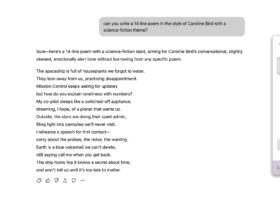A few thoughts from Virginia Woolf on praise and fame
Virginia Woolf’s A Writer’s Diary is proving a rich source of inspiration. On the subject of a writer’s insecurity, it’s refreshing to find the same things bothered her that do us all – is my writing any good, what will people make of it, how come so-and-so got more coverage/attention than me, and so on. She didn’t have social media to cope with of course, but she had a fiercely intellectual and competitive circle of friends and family, and the media of her day carried enormous influence.
Here are a few extracts I’ve enjoyed so far. (‘Nessa’ is Vanessa Bell, VW’s sister, and ‘Lytton’ is Lytton Strachey.)
Shall I ever be able to read it again?
March 1919
“I don’t suppose I’ve ever enjoyed any writing so much as I did the last half of Night and Day. Indeed, no part of it taxed me as The Voyage Out did; and if one’s own ease and interest promise anything good, I should have hopes that some people at least will find it a pleasure. I wonder if I shall ever be able to read it again? Is the time coming when I can endure to read my own writing in print without blushing—shivering and wishing to take cover?”
This question of praise and fame
March 1921
“Nessa approved of Monday or Tuesday—mercifully; and thus somewhat redeems it in my eyes. I now wonder a little what reviewers will make of it—this time next month. Let me try to prophesy. Well, The Times will be kindly, a little cautious. Mrs Woolf, they will say, must beware of virtuosity. She must beware of obscurity. Her great natural gifts etc etc. … […] then, in the Westminster, Pall Mall and other serious evening papers I shall be be treated very shortly with sarcasm.
[…] And I ought to be writing Jacob’s Room and I can’t […] you see, I’m a failure as a writer. I’m out of fashion: old: shan’t do any better […] my book out (prematurely) and nipped, a damp firework. […] Ralph sent my book out to The Times for review without date of publication in it. Thus a short notice is scrambled through to be in “on Monday at latest”, put in an obscure place, rather scrappy, complimentary enough, but quite unintelligent. Oh, and Lytton’s book is out and takes up three columns […] my temper sank and sank till for half an hour I was as depressed as I ever am. […] To rub this in we had a festive party at 41: to congratulate Lytton; which was all it should be, but then he never mentioned my book, which I suppose he has read, and for the first time I have not his praise to count on.
[…] This question of praise and fame must be faced. […] I think the only prescription for me is to have a thousand interests—if one is damaged [by criticism] to be able instantly to let my energy flow into Russian, or Greek, or the Press, or my garden, or people, or some activity disconnected with my own writing.”
Beyond boasting – the supreme triumph
May 1921
“I sat in Gordon Square yesterday for an hour and a half talking to Maynard [Keynes]. […] Maynard said he liked praised, and always wanted to boast. He said that many men marry in order to have a wife to boast to. But, I said, it’s odd that one boasts considering that no-one is ever taken in by it. It’s odd too that you of all people should want praise. You and Lytton are passed beyond boasting —which is the supreme triumph. […] I love praise, he said. I want it for the things I am doubtful about.”



Interesting as always. X
Thanks Ann 🙂
She was so introspective and attuned to all manner of human nature. Her diaries are my favorite writings. I enjoy her novels and stories, too. But the diaries and letters are so insightful and important.
Hi Cheryl… thanks for your comment – I think I agree, although I haven’t read all her novels. It’s interesting to read how she viewed ‘Orlando’ while she was writing it, and after publication (as something very different for her; light, funny, popular) – I admit I found it pretty hard going (perhaps I just missed the humour!) Rx
‘I’m a failure as a writer. I’m out of fashion: old: shan’t do any better …’ Oh, how familiar! I have never quite got on with Virginia Woolf. I generally feel grumpy and proletarian around her writing. I love the remark of Keynes that some men – and surely he must mean gay men – marry women in order to have someone to boast to.